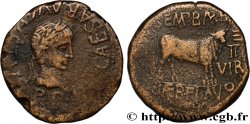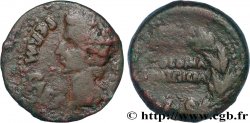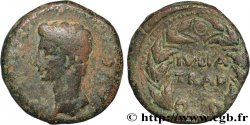Obverse
Obverse legend : CAESAR AVGVST PONT MAX TRIBVNIC [POT].
Obverse description : Tête nue d’Auguste à droite (O°).
Obverse translation : “Cæsar Augustus Pontifex Maximus Tribunicia Potestas”, (César Auguste grand pontife revêtu de la puissance tribunitienne).
Reverse
Reverse legend : M. SALVIVS. OTHO. III. VIR. A. A. A. F. F..
Reverse description : Légende autour de SC.
Reverse translation : “Marcus Salvius Otho Triumvir Auro Argento Ære Flando Feriundo”, (Marcus Salvius Othon magistrat en charge de la préparation des flans et de la frappe des monnaies d’or, d’argent et de bronze/ avec l’accord du Sénat).
Commentary
Historical background
AUGUSTUS
(01/16/27 BC - 08/19/14 AD)
Augustus, after Actium and the taking of Alexandria, remains the sole master of the Roman Empire. He gave his powers to the senate in 27 and was honored with the title of august, giving birth to a new political regime: the principate.. The next forty years will be devoted to structuring and consolidating the system put in place by Augustus on the political, economic and cultural level.. He is assisted by Agrippa, who becomes his son-in-law by marrying his daughter Julia in 21 BC.. -VS. and bears him two grandsons, Caius and Lucius. Unfortunately, Agrippa, friend and double, died in 12 BC.. -VS. On the military level, he is seconded first by Drusus then by Tiberius - the two sons of his third wife, Livia. On the cultural level, the arbiter of fashions is Patron. With his epic the Aeneid, new Iliad and Odyssey, Virgil recalls the mythical birth of Rome and exalts the Roman virtues.. With skillful diplomatic and military activity, and despite the disaster of Varus in 9 AD, Augustus fixed the limes on the Rhine-Danubian front, benefiting from the repeated campaigns of Drusus, then Tiberius, and the end of the reign of Germanicus, son of Drusus. The relative peace with the Parthians is materialized by the return of the ensigns and prisoners of Carrhae (53 BC. -VS. ) in 20 BC. -VS. This event has a considerable impact. Augustus also reorganizes the senatorial and imperial provinces. He reserves the administration of Egypt. The last twenty years of his reign are dedicated to the preparation of his succession. One after the other, Agrippa died in 12 BC.. -VS. , Drusus in 9 BC. -VS. , then his two grandsons, Lucius in 2 and Caius in 4. Aged 77, Auguste died in Nola on August 19, 14, leaving the throne to Tiberius, new husband of Julie, already twice widowed.. His hopes also rest on Germanicus while Agrippa Posthumus has been sidelined. After his death, Augustus is deified and the Romans give his name to the eighth month of the year, August (augustus).







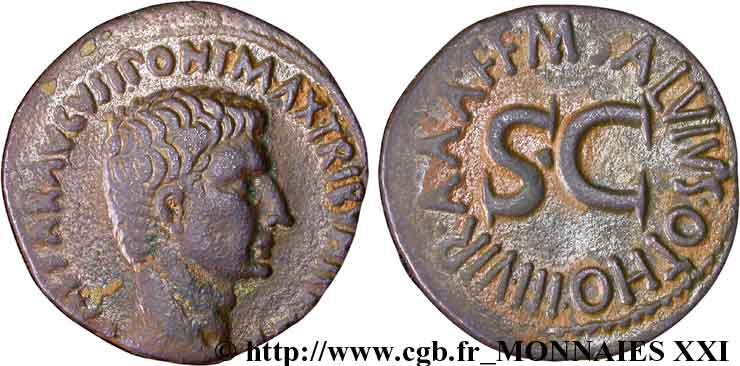
 Report a mistake
Report a mistake Print the page
Print the page Share my selection
Share my selection Ask a question
Ask a question Consign / sell
Consign / sell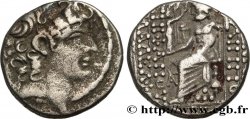
 Full data
Full data